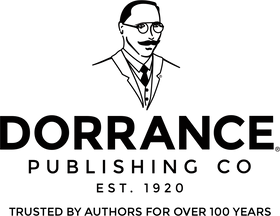Implementing Differentiated Instruction By Building On Multiple Ways All Students Learn
This book is about making learning fair and equitable for every child. The researcher develops a support system for teachers working in inclusive classrooms by providing them tools to engage students with varying academic, cultural, and linguistic needs. Starting with changing teachers’ mindsets, strategies were embraced to support students’ academic progress using multiple instructional strategies. Some of those strategies include inquiry-based learning, formative assessments, literature students can read, collaborative group work, and modifying all types of assignments. Over the course of this research, teachers developed the necessary skills to foster success for all children, making learning fair and equitable in the classroom.
About the Author
Dr. Richard K. Ramos grew up in a rural, copper mining town of about 6,000 people. His parents had him when they were teenagers; therefore, they had very little resources. When he entered school as a kindergartener, he struggled adapting to the school environment. By first grade, he was labeled a special education resource student. At the time, he didn’t feel inadequate. Instead, he recognized he just didn’t have the exposure to the tools and skills to learn at grade level just yet. This experience started the journey to serving as an educator for twenty-five years. As an educator, Ramos taught mostly seventh- and eighth-grade students. He worked diligently to make his lessons engaging and connected to the real world, especially as a social studies teacher. Ramos found success as a teacher, but he moved on to administration in 2001 to grapple with educational leadership. He served as an assistant principal for four years and principal for the next six years. With the reduction of school budgets during the financial crisis of 2008, he became overwhelmed with the responsibility of maintaining a high-functioning school with less money, so he left the profession. He ventured to the East Coast and became a branch manager of a financial institution. After two years in another profession, he ventured back to Arizona and returned to education as a principal for another six years. Ramos’s passion for learning was reignited and he enrolled in a doctoral program at Arizona State University. In 2018, he received his doctoral certificate in Educational Leadership and Innovation. As a doctor in education, he felt as though he had more leverage to make structural change in the field. This has led him to serve as an Executive Director of Innovation and Learning in a large district in the South Phoenix area. He is fortunate to work in a rich cultural community where he gets to take risks and think outside the box to support students in a K-8 setting. As for hobbies and special interests, Ramos takes time to find balance by reading, writing, exercising, meditating, and traveling. Although he is unmarried, he has a very loving and caring family. Ramos spends time with each family member developing relationships and support systems. He is grateful for every encounter and he looks forward to the future. Every day holds another learning experience, and he embraces the opportunities of the unknown.
Published: 2021
Page Count: 148


